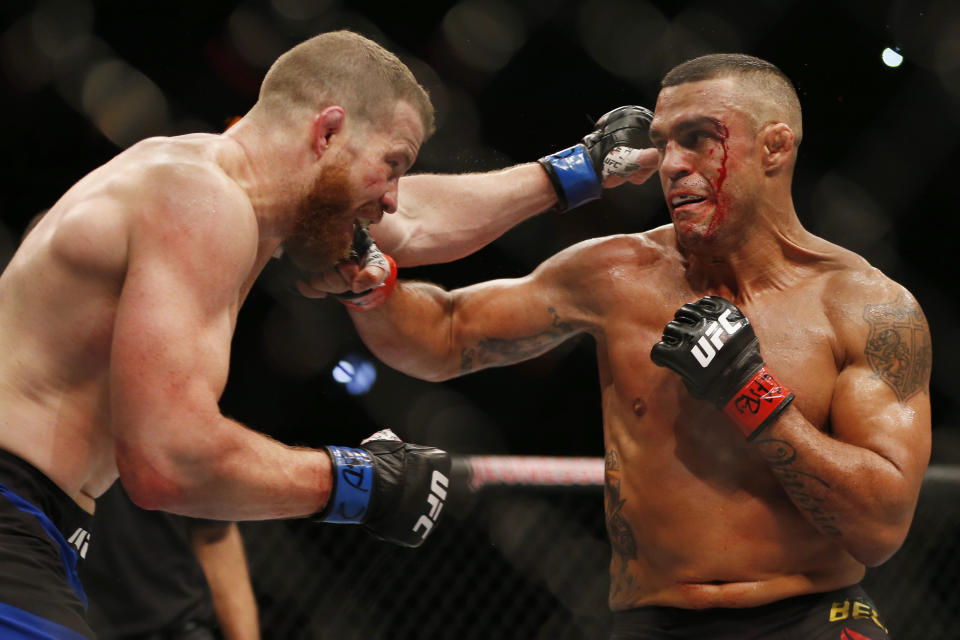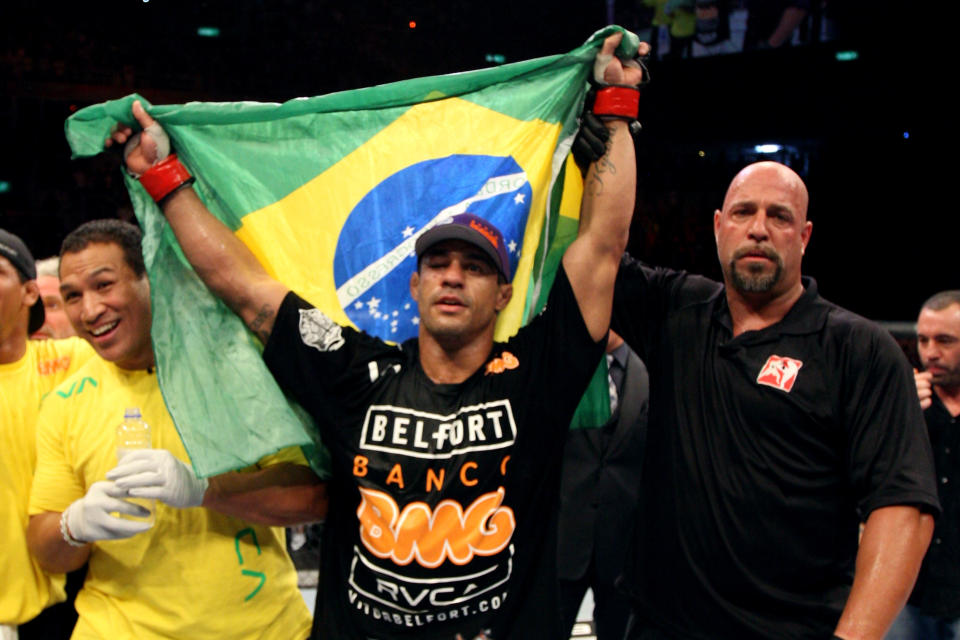Why Vitor Belfort doesn't lament career 'mistakes' ahead of retirement fight
Vitor Belfort debuted in mixed martial arts in 1996, nearly a decade before the sport showed signs of life and became a sustainable business.
He was a wide-eyed teenager with fast hands and terrific fitness when he won the heavyweight tournament at UFC 12 and was forever after known as “The Phenom.”
Belfort, who is preparing for the final fight of a 21-plus-year career on Sunday in St. Louis when he meets Uriah Hall at UFC Fight Night, insists he knew way back when few others believed that MMA would someday hit it big.
“I always knew this would happen,” the now 40-year-old Belfort said about the sport’s incredible growth and burgeoning popularity around the world. “I knew I was getting in on the beginnings of something that would be big. It was never if it would be huge; it was only a matter of time, when it would happen.”
He’ll walk away after facing Hall – hardly a parting gift from the UFC, considering how dangerous Hall is – and devote his time to developing his gym, Belfort Fitness Lifestyle. It’s something he plans to franchise worldwide.

He’s excited about the potential of his business, just like he was excited when he was 19 about the potential of his new sport. But even though fights are held around the world, fighters are mainstream stars and the pay is so good for those at the top that they don’t need to work again after their fighting days end, Belfort says things haven’t reached the pinnacle yet.
The fighters still don’t make as much as he believes they should, or will, in the near future.
“It’s funny, but people think we’re the millionaires and except for a few guys, that’s not true,” he said. “The organization itself is worth billions. The owners are the ones who have made that money. They saw a good thing and they took a risk and they increased the value.
“I think what is coming will be changes when you’re talking about fighter contracts, about sponsorship, TV deals, everything. I don’t even think in the future, pay-per-view is going to exist. You see Netflix and Amazon and what they’re doing, and that’s a model I think is going to grow and grow. The UFC has its own service [UFC Fight Pass] and things are starting to change.”
His career has had both good and bad – he became notorious later in his career for performance-enhancing drug usage, though he insists he never knowingly cheated – but he is notable for his willingness to fight all comers.
He’s fought some of the greatest ever to set foot in a cage, including Jon Jones, Anderson Silva, Chuck Liddell, Randy Couture, Dan Henderson, Luke Rockhold, Michael Bisping, Anthony “Rumble” Johnson, Rich Franklin, Alistair Overeem, Chris Weidman and Wanderlei Silva.
He spoke about retiring following a win over Nate Marquardt at UFC 212 in Rio de Janeiro in June, but said he preferred to finish out his contract.
He didn’t get an easy finale and said he didn’t want one.
“I think what Vitor Belfort is known for is that he was always willing to face the best talent, whenever and wherever,” he said.
He has had his share of regrets in his career, but said he turned them from negatives into positives. Learning from mistakes, he said, is important not only for growth as a fighter but also as a human.
“I ought to come out with a book I’d call ‘Regrets,’ ” he said. “I think that would help a lot of people. If you regret a mistake, don’t just make that mistake again. Look at it and learn from it and grow from it.
“I don’t think Apple would be making the computers, the iPhone, being the top electronics company it is, if Steve Jobs didn’t have some regrets over mistakes he made and learned to overcome them. That’s so important. I have had regrets along the way, but when I leave this sport, I’ll do so with my head held high. I know I gave it my heart and soul and I tried to learn and be better every day.”



